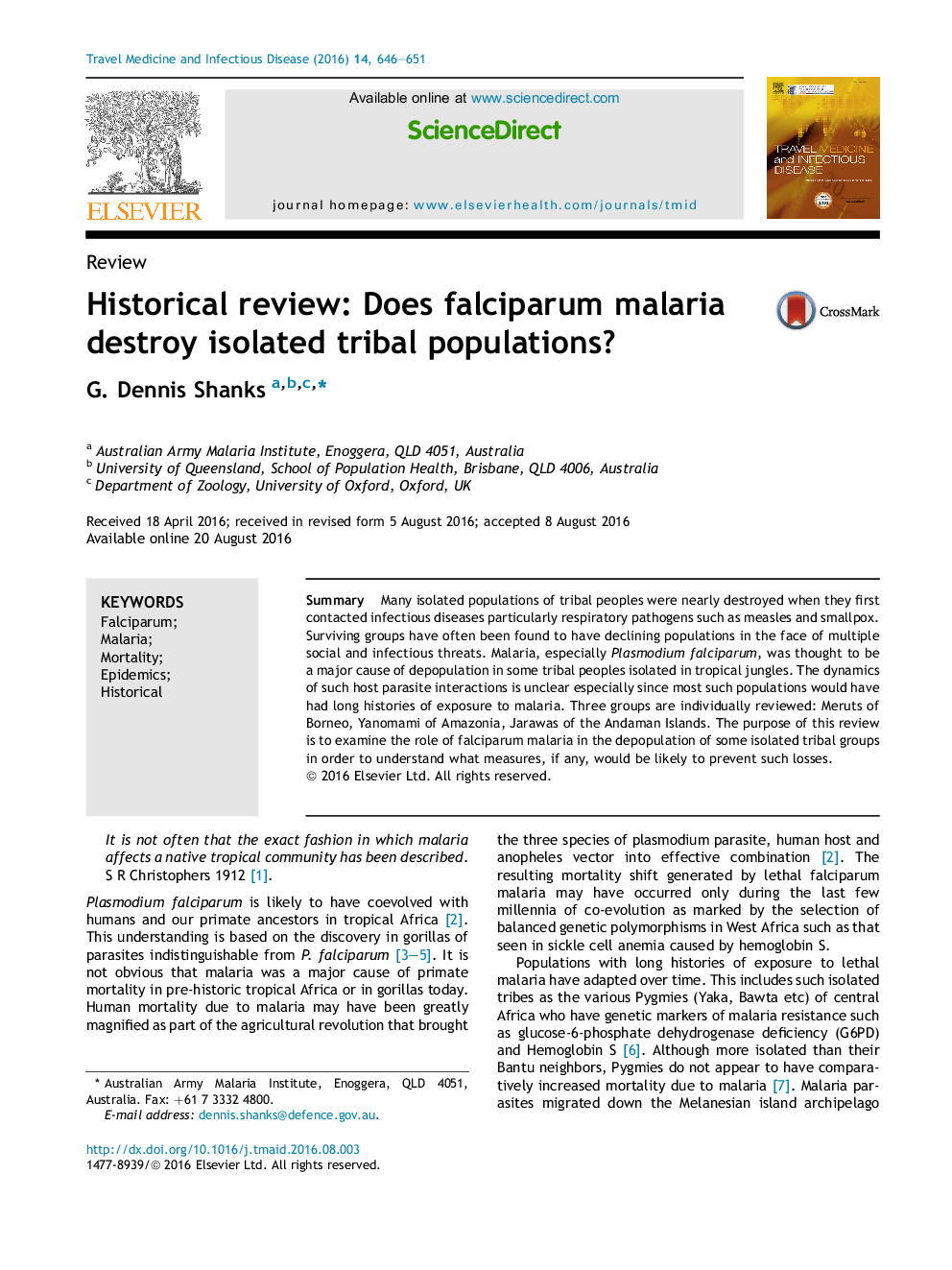| Article ID | Journal | Published Year | Pages | File Type |
|---|---|---|---|---|
| 5670539 | Travel Medicine and Infectious Disease | 2016 | 6 Pages |
SummaryMany isolated populations of tribal peoples were nearly destroyed when they first contacted infectious diseases particularly respiratory pathogens such as measles and smallpox. Surviving groups have often been found to have declining populations in the face of multiple social and infectious threats. Malaria, especially Plasmodium falciparum, was thought to be a major cause of depopulation in some tribal peoples isolated in tropical jungles. The dynamics of such host parasite interactions is unclear especially since most such populations would have had long histories of exposure to malaria. Three groups are individually reviewed: Meruts of Borneo, Yanomami of Amazonia, Jarawas of the Andaman Islands. The purpose of this review is to examine the role of falciparum malaria in the depopulation of some isolated tribal groups in order to understand what measures, if any, would be likely to prevent such losses.
